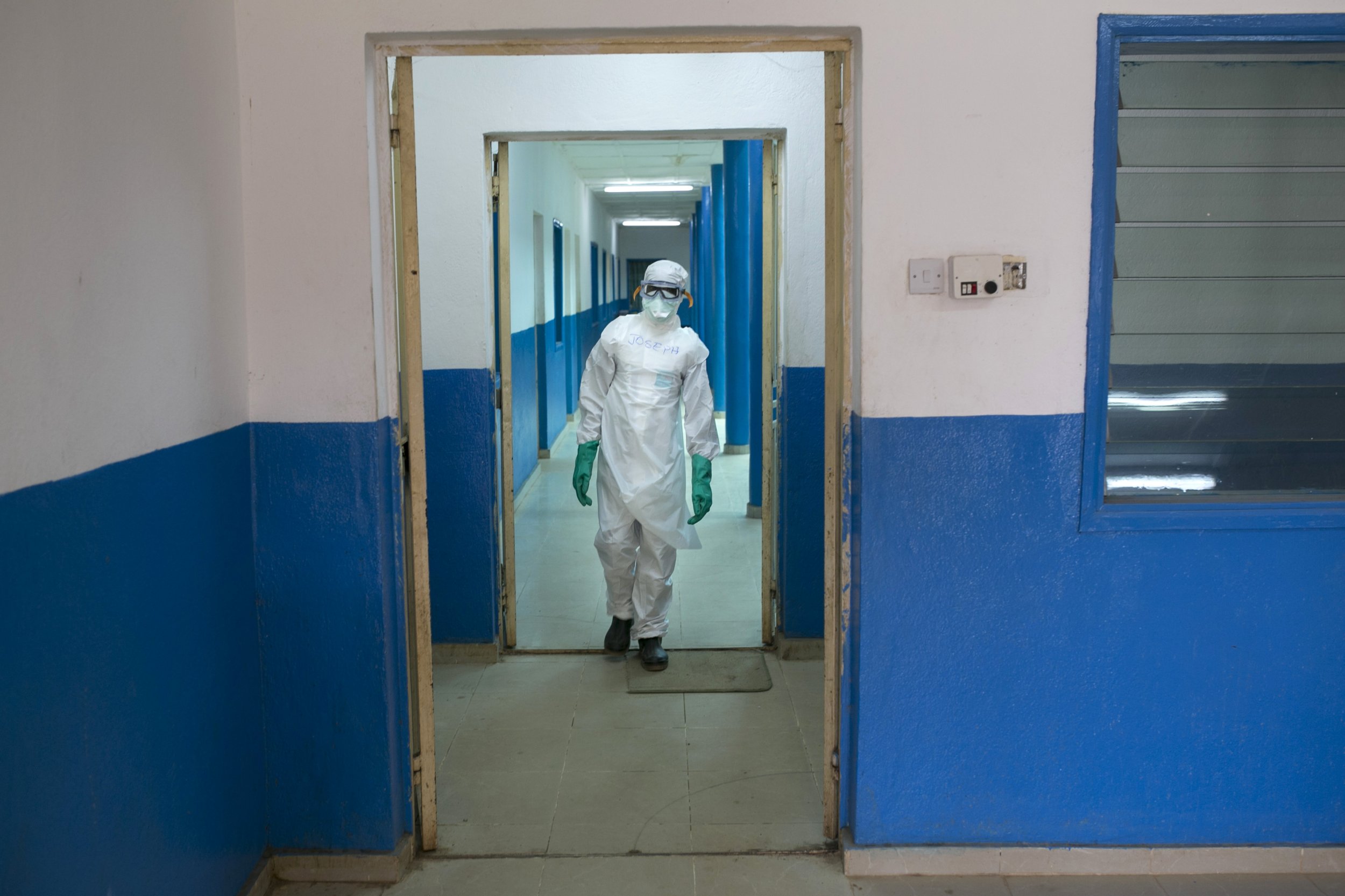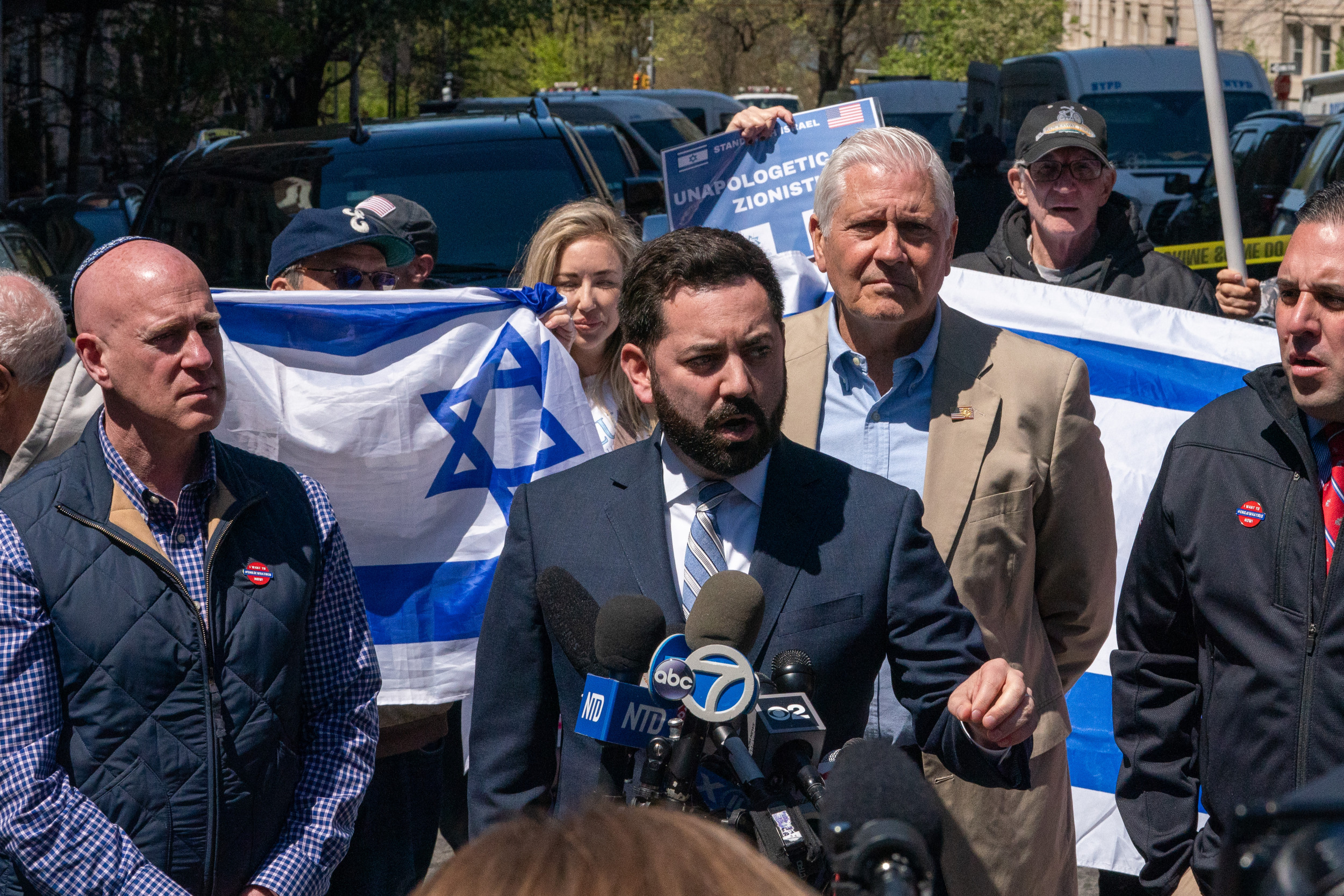
While disposing of a needle at an Ebola clinic in Sierra Leone, a doctor accidentally stuck himself with it. The needle itself had been used in an IV and probably wasn't contaminated, but before entering the flesh of the doctor's hand, it pierced his gloves, which had just come into contact with the bodily fluid of a patient who was shedding large amounts of the virus.
Other doctors deemed that there was significant risk he might have infected himself with Ebola. So he decided to take an experimental, newly developed vaccine provided by Emory University. Developed over the last decade by Public Health Agency Canada and a company called NewLink Genetics, Inc., the vaccine had been used once before in 2009, on a researcher who also stuck himself with a possibly contaminated needle in a lab in Germany. In that case, the patient, who was likely exposed to Ebola, didn't become infected.
He received an injection of the vaccine 43 hours after sticking himself, on a flight back to a National Institutes of Health facility outside Washington, D.C., assisted by Emory physicians, and soon thereafter developed significant flu-like symptoms. He came down with a fever, muscle aches and nausea, but these only lasted for two days. A week later he was back to normal, and never came down with Ebola, according to a study describing the case published online today in The Journal of the American Medical Association.
The vaccine consists of a modified version of the vesicular stomatitis virus, which causes flu-like symptoms in humans, but is not usually life-threatening. On the surface of these viruses, researchers inserted cell receptors identical to the ones that coat the exterior of Ebola. This technique appears to "trick" the body's immune cells—which come into contact with the exterior of the virus—into producing antibodies against Ebola rather than vesicular stomatitis.
Tests of the doctor's blood days after the vaccine was administered showed that his body had developed antibodies specific for the Ebola virus, thanks to the vaccine, at relatively high levels. Animal studies suggest that producing this many antibodies could likely help a person fight off the infection more easily, and possibly protect them from coming down with a full-blown infection in the first place.
There is no definitive evidence that the doctor was actually infected with Ebola, but it is possible the vaccine prevented him from coming down with it, writes Thomas Geisbert, a researcher at the University of Texas Medical Branch, Galveston, in an editorial accompanying the study.
"This incident serves as an example of how important it is to have safe and effective countermeasures available ... for emergency use for both medical workers and affected populations," Geisbert says.
Uncommon Knowledge
Newsweek is committed to challenging conventional wisdom and finding connections in the search for common ground.
Newsweek is committed to challenging conventional wisdom and finding connections in the search for common ground.
About the writer
Douglas Main is a journalist who lives in New York City and whose writing has appeared in the New York ... Read more
To read how Newsweek uses AI as a newsroom tool, Click here.








